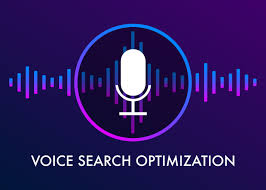
The digital marketing landscape is constantly evolving, and as we move into 2025, new trends are set to redefine how businesses engage with their audience. With advancements in artificial intelligence, data privacy regulations, and consumer behavior shifts, marketers must stay ahead of the curve to remain competitive. This article explores the key digital marketing trends for 2025 and how businesses can leverage them for success.
Artificial Intelligence (AI) and Automation

AI continues to revolutionize digital marketing by enabling businesses to automate tasks, personalize content, and analyze data efficiently. AI-powered chatbots, predictive analytics, and automated ad placements will become even more sophisticated, allowing brands to enhance customer engagement and optimize marketing strategies.

With the growing use of smart assistants like Alexa, Siri, and Google Assistant, optimizing content for voice search is crucial. Marketers will need to focus on conversational keywords, long-tail queries, and local search optimization to ensure their content ranks well for voice-based searches.
Video Marketing and Short-Form Content
Video content remains a dominant force in digital marketing. Platforms like TikTok, YouTube Shorts, and Instagram Reels will continue to shape consumer engagement. Brands will need to invest in high-quality, engaging short-form videos to capture audience attention quickly.
Social media platforms are increasingly becoming shopping hubs. Features like Instagram Shopping, Facebook Marketplace, and TikTok Shop enable users to purchase directly from social media channels. Brands must focus on seamless, integrated shopping experiences within these platforms to drive conversions.
Privacy-Centric Marketing and First-Party Data
With stricter data privacy regulations and the phasing out of third-party cookies, marketers must prioritize first-party data collection. Strategies such as email marketing, loyalty programs, and direct customer engagement will be essential in building trust and maintaining personalized experiences.
Augmented Reality (AR) and Virtual Reality (VR) Experiences
AR and VR will play a significant role in digital marketing by offering immersive brand experiences. From virtual product try-ons to interactive advertising, businesses can leverage these technologies to enhance customer engagement and improve purchase decisions.
Influencer and Micro-Influencer Marketing

Influencer marketing continues to be a powerful tool, but in 2025, there will be a shift towards micro-influencers who have niche audiences with high engagement. Brands will collaborate with influencers who align with their values to drive authentic connections with their target audience.
Sustainability and Ethical Marketing

Consumers are becoming more conscious of environmental and social issues, influencing their purchasing decisions. Brands that emphasize sustainability, ethical sourcing, and corporate social responsibility in their marketing strategies will gain customer loyalty and trust.
Hyper-Personalization and Predictive Analytics
Personalization goes beyond addressing customers by their names. Using AI-driven predictive analytics, brands can anticipate customer needs and deliver highly relevant content, product recommendations, and experiences in real-time.
Interactive and Gamified Content

Interactive content such as quizzes, polls, and gamification strategies will be essential in engaging audiences. Gamified experiences increase user participation and brand loyalty, making marketing campaigns more memorable and effective.
As digital marketing evolves in 2025, businesses must adapt to these trends to stay ahead. Leveraging AI, prioritizing privacy, optimizing for voice search, and embracing immersive technologies will be key strategies for success. Marketers who embrace innovation and customer-centric approaches will thrive in this ever-changing digital landscape.

